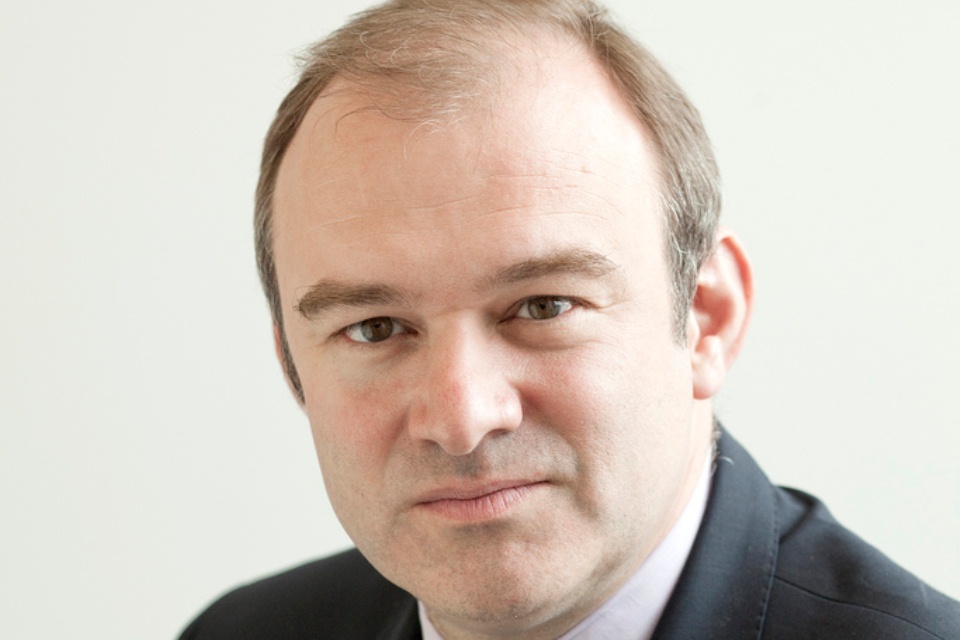Written Ministerial Statement Publication of UK Government plans to tackle global deforestation
Ahead of the important international negotiations in Doha, I wanted to update you on the plans I have been developing with Rt Hon Justine Greening and Rt Hon Owen Paterson on international forests and...

Ahead of the important international negotiations in Doha, I wanted to update you on the plans I have been developing with Rt Hon Justine Greening and Rt Hon Owen Paterson on international forests and climate change. So, today, I am outlining new action to tackle deforestation as part of the UK’s international climate change commitments.
I am setting out plans for working with the private sector and rainforest countries so that the timber and foodstuffs we buy do not cause deforestation. Under the International Climate Fund, up to £300m is available for these activities. We are committed to ensuring all our spend achieves value for money and so will be testing the appropriate allocation further in the design process.
UK programmes under the International Climate Fund are expected to support sustainable growth in forest countries, and boost the incomes of thousands of poor people who depend on the forests for their livelihoods. Through these programmes, the UK is playing its part to help save tens of millions of hectares from being deforested, and help to conserve biodiversity.
Tackling deforestation is a central part of how we address climate change, whilst reducing poverty and protecting biodiversity. Up to 17% of global greenhouse gas emissions come from deforestation, and around 13 million hectares of forest are lost every year. An estimated 1.2bn poor people depend on forests for their livelihoods, and forests hold up to 80% of global terrestrial species.
Our support over the years for countries efforts to control illegal logging, and to encourage trade in legally harvested timber has already showed great success. Collective efforts to control illegal logging over the past ten years have helped to protect an estimated 17m hectares of forest, an area equivalent to England and Wales in size. These efforts have also saved developing countries an estimated US$6.5bn in potential tax revenues, so the benefits of taking action are clear.
But with growing demand for agricultural products, the timber market is no longer the biggest driver of deforestation. Around 60% of deforestation is now thought to be driven by agricultural products, such as production of soy, beef, palm oil, cocoa. So now we need to see the same shift in supply of certified sustainable products as we saw for timber.
UK funds could support sustainable intensification of agriculture, land swaps to move production onto degraded land, community forestry and other investments which make forests more valuable and so increase the incentives to keep them standing.
Also today, I am pleased that we are joined by other donor countries in setting out priorities on forests for the UN climate conference in Doha and beyond, including on ensuring our respective efforts are coordinated and coherent.
Abitious commitments and actions by forest nations are critical. In that context, I am announcing today that £15m of the UK’s International Climate Fund will go towards developing silvo-pastoral systems for climate change mitigation and poverty alleviation in Colombia. This involves supporting smallholder farmers to plant trees on cattle grazing land, to increase biodiversity, improve the livelihood of farmers, reduce carbon emissions, and protect local forests.